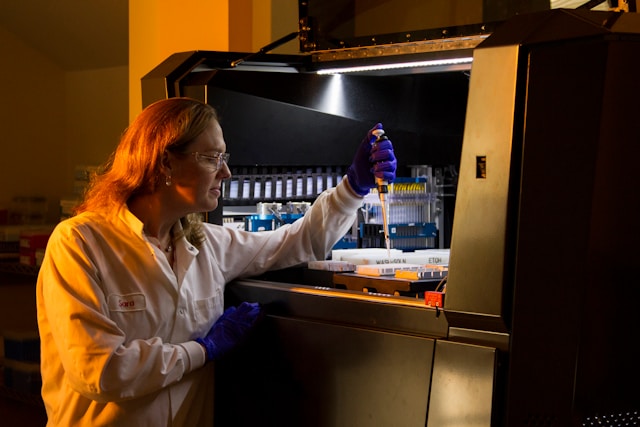Biotechnology, a powerful fusion of biology and technology, has revolutionized numerous industries. By harnessing the potential of living organisms and their cellular processes, researchers are making significant strides in medicine, agriculture, energy, and environmental protection. This vast field encompasses a multitude of specializations, each with its own unique set of applications. Let’s delve into some of the most prominent fields within biotechnology:
1. Medical and Pharmaceutical Biotechnology: This sector focuses on developing diagnostic tools, therapeutic drugs, and vaccines to combat diseases. Techniques like genetic engineering allow scientists to manipulate genes to produce life-saving drugs such as insulin for diabetics. Gene therapy holds immense promise for treating genetic disorders by introducing healthy genes to replace faulty ones. Additionally, researchers are developing innovative cancer treatments like immunotherapy, which harnesses the body’s immune system to fight tumors.
2. Agricultural Biotechnology: This field aims to improve crop yield, enhance food quality, and develop resistance to pests and diseases. Through genetic modification, scientists can create plants resistant to herbicides or with improved nutritional content. Microorganisms are also employed in this field, for instance, nitrogen-fixing bacteria can enrich soil, reducing dependence on chemical fertilizers. Agricultural biotechnology also contributes to bioremediation, the use of living organisms to clean up contaminated environments.
3. Industrial Biotechnology: This sector utilizes living organisms and biological processes for industrial applications. One major area is biomanufacturing, which involves producing valuable products like enzymes, biofuels, and bioplastics using microorganisms. Industrial biotechnology also finds use in bioremediation, where microbes are employed to clean up oil spills and industrial waste. Additionally, enzymes are used in various industrial processes such as textile production and food processing, offering eco-friendly alternatives to traditional chemical methods.
4. Environmental Biotechnology: This field focuses on using biological systems to address environmental challenges. Bioremediation, as mentioned earlier, plays a crucial role in cleaning up polluted soil, water, and air. Environmental biotechnology also involves developing biofuels, which are renewable and potentially more sustainable alternatives to fossil fuels. Microorganisms can be used to break down pollutants and organic waste, contributing to a cleaner environment.
5. Marine Biotechnology: This emerging field explores the vast potential of marine organisms for various applications. Marine organisms are a rich source of novel biomolecules with potential applications in medicine, cosmetics, and industrial processes. Marine enzymes with unique properties can be used in bioremediation and various industrial applications. Additionally, marine organisms are being studied for their potential contribution to drug discovery and development.
6. Bioinformatics: This field bridges the gap between biology and computer science. Bioinformatics experts develop and utilize software tools to analyze biological data, such as DNA sequences or protein structures. This information is crucial for understanding gene function, designing new drugs, and developing personalized medicine approaches.
7. Food Biotechnology: This field utilizes biological processes to enhance food production, quality, and safety. Techniques like genetic modification can be used to create crops with improved shelf life or resistance to spoilage. Food biotechnology also plays a role in developing new food products, such as those enriched with essential nutrients. Additionally, this field contributes to food safety by developing methods for detecting and eliminating foodborne pathogens.
The field of biotechnology is constantly evolving, with new discoveries and advancements emerging at a rapid pace. As research progresses, we can expect even more groundbreaking applications across various sectors. From personalized medicine and sustainable agriculture to environmental clean-up and novel industrial processes, biotechnology holds immense potential to address global challenges and improve our lives.
